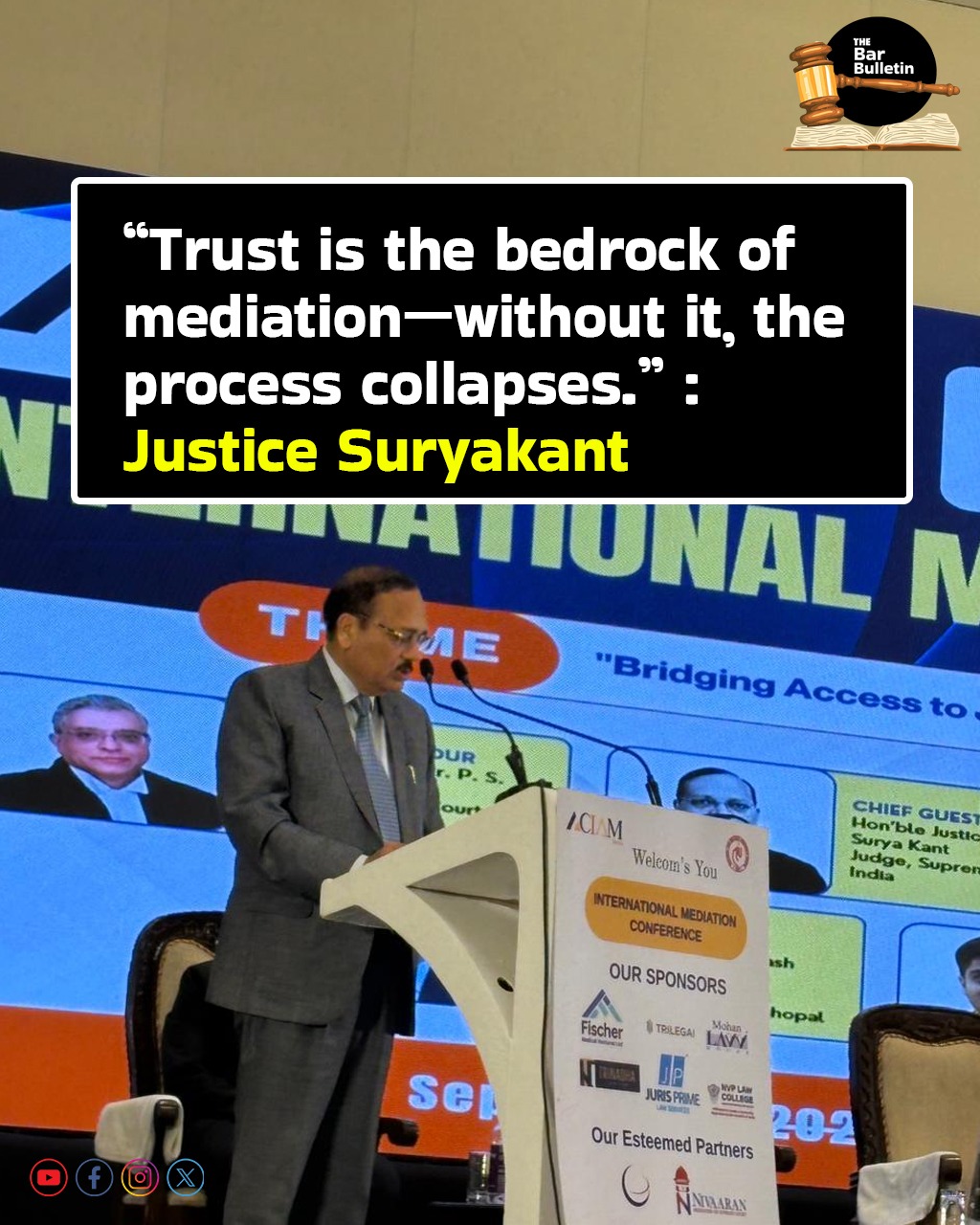Justice Suryakant, in his address at the International Mediation Conference, emphasized that the gathering was not merely an event but a turning point in the pursuit of accessible justice. He observed that the collaboration of ACIAM India, Trilegal, and NLIU Bhopal signified a collective resolve to reimagine dispute resolution, making justice less intimidating and more inclusive.
He underlined that the Constitution of India envisions justice beyond adjudication, embracing social, economic, and political dimensions. Mediation, he stressed, embodies this constitutional promise by keeping parties at the centre, ensuring dignity, and fostering trust.
Justice Suryakant outlined three pillars of trust in mediation:
1. Integrity of the Mediator – impartiality and competence as the bedrock of confidence.
2. Credibility of Institutions – strong mediation frameworks to lend legitimacy and structure.
3. Support of the Law – statutory backing such as the Mediation Act, 2023, which provides enforceability and ethical obligations.
He noted that while laws are important, they cannot alone transform culture; mediation must be embraced by society as a superior process that empowers parties and preserves relationships.
On technology, Justice Suryakant acknowledged its transformative role in dispute resolution. He highlighted how digital platforms, AI tools, and virtual hearings expand access, enabling participation from farmers, entrepreneurs, and homemakers alike. At the same time, he cautioned against excluding vulnerable communities due to digital illiteracy or infrastructure gaps, stressing the need for user-friendly platforms, multilingual interfaces, and robust cybersecurity safeguards.
He pointed out that technology should not replace empathy, but rather enhance mediation with tools like AI-assisted summaries, translation, and real-time documentation. The goal, he reiterated, is empowerment—not efficiency alone.
Turning to lawyers and students, he urged them to embrace mediation as an expansion of advocacy rather than a challenge. The future lawyer, he said, will be both a facilitator of dialogue and a protector of relationships. Institutions like ACIAM, Trilegal, and NLIU are shaping this future by training mediators and building the justice architecture of tomorrow.
In conclusion, Justice Suryakant remarked that justice is not a fortress to be defended, but a bridge to be built—anchored in constitutional values, strengthened by laws and institutions, powered by technology, and sustained by trust. Mediation, he said, is that bridge which connects the letter of the law with the spirit of justice.

